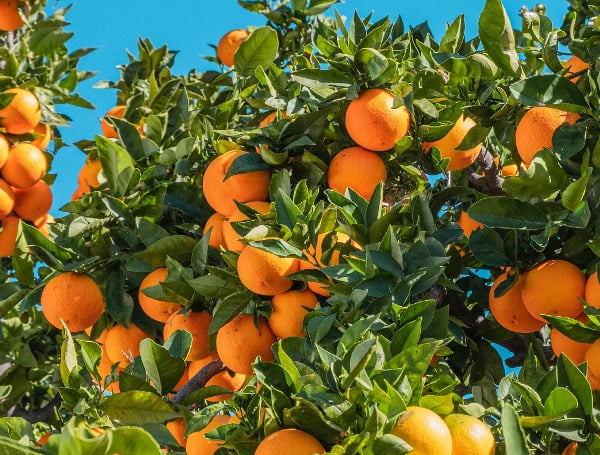Numbers released Wednesday confirmed that Florida’s 2022-2023 citrus season was the worst in nearly a century, as growers tried to recover from an early-season hurricane that exacerbated industry struggles.
The U.S. Department of Agriculture on Wednesday issued a final report that showed a huge dropoff in production from the 2021-2022 season. The industry would have to go back to the 1929-1930 season to find comparable numbers.
Growers produced 15.85 million boxes of oranges during the 2022-2023 season, down from 41.2 million boxes during the 2021-2022 season, which itself marked a continued decrease in production. A little more than two decades ago, annual production topped 200 million boxes of oranges and 50 million boxes of grapefruit.
In the news: Florida Ag Commissioner Seeks Nominations For 2023 Woman Of The Year In Agriculture Award
In the 2022-2023 season, growers produced 1.81 million boxes of grapefruit, down from 3.33 million boxes in the 2021-2022 season.
The state also produced 480,000 boxes of specialty crops, mostly tangerines and tangelos, down from 750,000 boxes in 2021-2022. The industry uses a standard of 90-pound boxes.
Chances of a rebound might be two or three years off, as new plantings take hold and surviving trees recover from the stresses of getting hammered last fall by Hurricane Ian.
But growers hope that ongoing testing will help make trees resistant to citrus greening disease, which has ravaged groves for two decades. Also, they are looking for federal disaster-relief money to start flowing.
“There’s always going to be pressures from development and other things. Alternative crops. Alternative uses for the land. But we still have almost 400,000 acres of citrus in the state of Florida. That’s a massive footprint,” Matt Joyner, CEO of the Bartow-based Florida Citrus Mutual, said.
“I’m not sure — other than maybe grazing land — any other single commodity has probably more than that,” Joyner added. “So, there’s a lot of room to rebuild this industry as we continue to learn how to grow in a greening (disease) environment.”
In the news: 33 Stolen Semi-Trailers Recovered In Florida Agricultural Law Enforcement Operation
Hurricane Ian made landfall in late September in Southwest Florida and crossed the state through prime citrus-growing areas. But the industry was already buckling from development pressures, foreign imports and citrus greening, and an early-season forecast anticipated a drop in production as a “fruit per tree” count was down.
Ian inflicted up to $675 million in damage to citrus groves, according to the Florida Department of Agriculture and Consumer Services.
Between 9 percent and 11 percent of Florida’s 55 million citrus trees were lost in the storm, with the effects of flooding still being felt by trees that held up.
“Growers are planting now, but you will see that expedited if we get this federal aid across the finish line,” Joyner said.
Members of Florida’s congressional delegation continue to push for a block grant to disperse assistance to citrus growers. The money would come from a $1.7 trillion omnibus spending bill passed in December that included $3.742 billion for crop and livestock losses across the nation in 2022 and the upcoming Farm Bill.
A measure that recently passed the U.S. House and awaits action by the U.S. Senate would give the U.S. Department of Agriculture authority to issue block grants.
The 2023-2024 Florida budget, which took effect July 1, increases funding for various aspects of the citrus industry from $37 million to $65 million. The bulk, $49.5 million, will go to citrus protection and research, including large-scale field trials on trees that are resistant to huanglongbing, the formal name for citrus greening.
Android Users, Click To Download The Free Press App And Never Miss A Story. Follow Us On Facebook and Twitter—signup for our free newsletter.
We can’t do this without your help; visit our GiveSendGo page and donate any dollar amount; every penny helps


